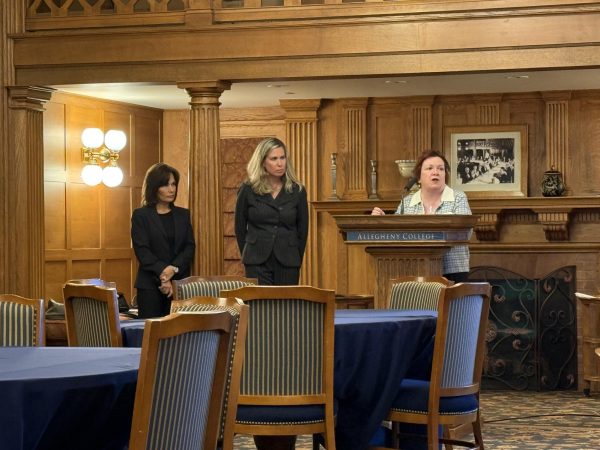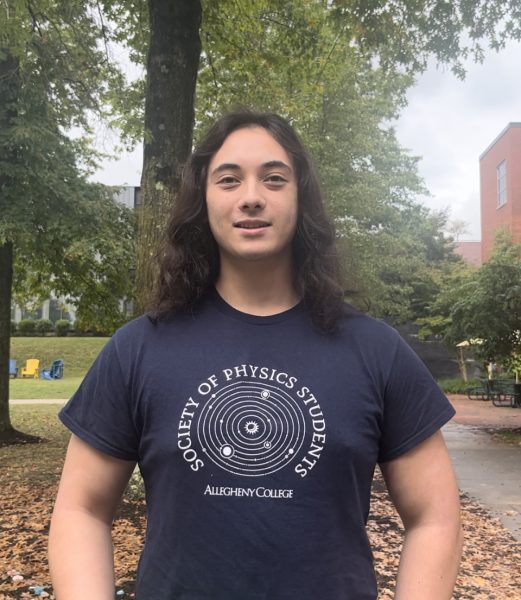Residence Life reallocates funding for RA positions
The Office of Residence Life will reallocate funding for the 2017–18 academic year to hire a fourth assistant director of residence life, restructure the current resident adviser positions, add four residence life interns and eliminate the community adviser position.
Jennifer Foxman, associate dean of students and director of residence life, said the fourth assistant director will manage some of the day-to-day operations of the office, and the office is already conducting a national search for this position.
To make this position available, the office needed to adjust its budget, Foxman said. She said the office shifted management of on-campus houses to the office itself, rather than RAs who oversaw them.
“The management structure we have for that is not the most efficient. I think it really needs more of a property manager approach in terms of facilities and work orders,” Foxman said. “They’re just a different kind of residence, so I think we can serve students better if we’re managing those out of the office.”
Foxman said the responsibilities of managing on-campus houses will be shifted to an assistant director of residence life.
In addition to eliminating the house RA position, the office has also eliminated the current CA position and replaced it with a head resident adviser.
“We’re not going to have CAs in the way we’ve traditionally had CAs,” Foxman said.
Head RAs will be compensated with the current CA suite and a $300 stipend but will no longer receive compensated meal plans, according to Foxman. While they will receive less compensation, head RAs will be tasked with less than CAs.
In an email obtained by The Campus that was sent to students involved with residence life, the description of a head RA’s job were detailed.
“Head Resident Advisors share the same job responsibilities as an RA (including working with a group of residents who are assigned to them) but will take on some additional administrative responsibilities on behalf of the staff,” the email reads in part. “These responsibilities include serving as the liaison between the staff/building and the office staff, running staff meetings and collecting and tracking paperwork. Head RAs will not have any supervisory responsibilities.”
Foxman said supervisory responsibilities were one of the largest parts of a CA’s job.
Andrew Skelly, ’17, a CA in Baldwin Hall, said the role of a CA is uncommon among undergraduate colleges.
“I think it’s a lot of responsibility to throw onto an undergrad,” Skelly said.
Skelly said while the CA position may help students in that role who are interested in acquiring employment in a residence life after graduation, the head RA position should also help those students. He said the office will still have other leadership roles available for students.
The office has also changed the number of student residence life workers in certain residence halls. Baldwin Hall, Brooks Hall, Crawford Hall, North Village I and II, Ravine-Narvik Hall, Schultz Hall and Walker Hall will each lose one student staff member with the removal of the CA position.
The email sent to students involved with residence life states that Baldwin, Brooks, Ravine-Narvik, Schultz and Walker Halls will now have a staff-to-student ratio of 1-to-23, Crawford Hall will have a ratio of 1-to-24 and North Village a ratio of 1-to-48.
Residence life has also implemented four intern positions, intended to “assist professional and student staff, including with management of houses/apartments with the exception of NV,” according to an email from Foxman.
In addition to assisting residence life staff, Foxman said the student interns and other student residence life staff will serve on five new residence life committees.
The Student Training and Development Committee will research best training and development practices; the Resident Feedback and Satisfaction Committee will receive feedback from student residents via focus groups and surveys; the Facilities and Operations Committee will ensure student feedback with physical plant; the Programming Committee will figure best practices regarding resident programming; and the Staff Spirit Committee will bring and keep staff together after training in order to ensure consistency with regards to motivation.
Foxman said the committees have already been established, but having four assistant directors will ensure the office can facilitate these committees.
Overall, Foxman said she believes residence life can have more of an impact on students given these changes, as the office will have an additional 40 hours of professional service each week, four more interns and the implementation of committees.





